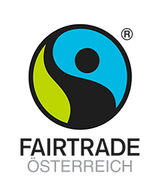von Fairtrade International
What will we eat in 2050? Fair food systems needed for future food security
Planadas, Tolima, Colombia
Rome, Italy: 24 July 2023 - As governments, civil society and international agencies gather in Rome for the 2023 United Nations Food Systems Stocktaking Moment, Fairtrade said that global food systems face unprecedented climate challenges and are “teetering on the edge of collapse.”
“We know that in as little as 30 years, rising temperatures and changing precipitation patterns will have rendered many regions unsuitable for growing essential crops,” said Juan Pablo Solis, Senior Advisor for Climate and Environment at Fairtrade International. “Sustainable, equitable food systems are critical for the survival of both people and planet. By proactively adopting sustainable and resilient food production models, we can avoid and mitigate many adverse climate impacts.”
“The UN Stocktaking Moment provides the international community with an opportunity to make a final push towards a truly sustainable planet,” added Javier Aliaga Lordemann, Director of the Fairtrade Centre of Excellence in Climate & Environment. “But that won’t happen without a more sustainable food system built on holistic ecological, social and economic foundations.”
Fairtrade’s newly-launched sustainable agriculture policy [link required] calls for resilient food systems based on agroecology - the application of environmentally and socially responsible principles to farming. The organisation warns that failure to adopt agroecology on a global scale could result in widespread crop losses and shortages of certain foods.
“Climate impacts will inevitably trigger a host of environmental, social and economic consequences,” said Solis. “Countries whose economies rely on cash crops will suffer a drop in income. Forests and protected reserves will be at risk of deforestation as farmers seek more productive land. The livelihoods of entire communities will be threatened, and food systems will face significant upheaval - not just in the countries where food is grown, but where it is consumed.”
Challenges for food growers across the world already include:
- banana producers in the Caribbean and in Central America experiencing scarcer rainfall and more extreme temperatures, while their fellow growers in Southeast Asia and Oceania face an increased risk of tropical cyclones
- coffee farmers in key regions such as Brazil, Indonesia, Vietnam, and Colombia encountering temperature spikes combined with drought which could reduce coffee production by up to 50 percent
- rising temperatures depriving farmers of most of the farmland suitable for cashew production in India and Benin.
Organisers of the three-day Rome summit say it will be an opportunity to “further socialise the powerful role of sustainable, equitable, healthy and resilient food systems” and to accelerate the UN Sustainable Development Goals (SDGs) - now only six years away.
“Fairtrade’s agroecology blueprint shows how sustainable farming can lead in turn to sustainable food systems, sustainable livelihoods and social justice, especially in rural areas,” explained Lordemann. “We firmly believe that agroecological principles will enable two million Fairtrade farmers and workers to work in a way which benefits us all whilst helping to deliver Agenda 2030. There is barely a single one of the 169 different SDG action points that isn’t somehow related to food and farming. A sustainable future must also be a fair future.”
For more information and to arrange interviews, please contact press@fairtrade.net.
About Fairtrade International
Fairtrade changes the way trade works through better prices, decent working conditions, and a fairer deal for farmers and workers in developing countries.
Fairtrade International is an independent non-profit organisation representing more than two million small-scale farmers and workers worldwide. It owns the FAIRTRADE Mark, a registered trademark of Fairtrade that appears on more than 37,000 products. Beyond certification, Fairtrade International and its member organisations empower producers, partner with businesses, engage consumers, and advocate for a fair and sustainable future.
Find out more at http://www.fairtrade.net.


